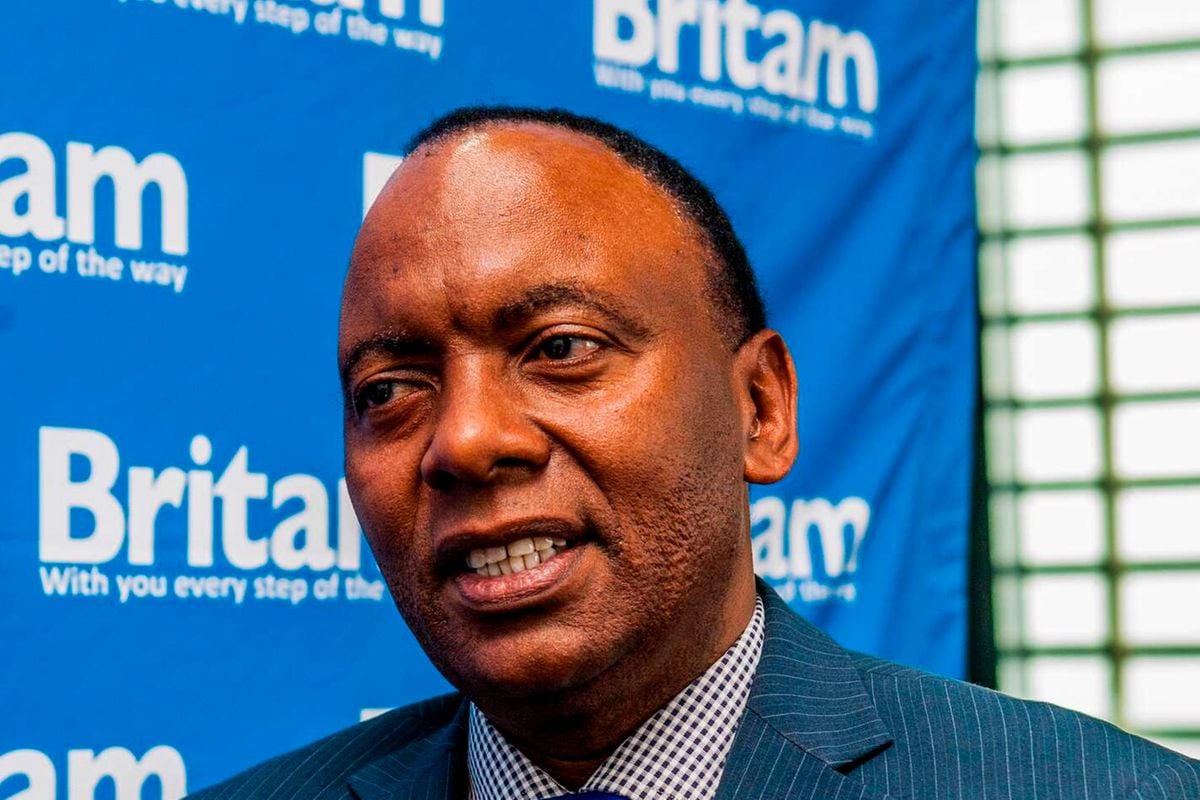Uganda, with a fiscal deficit of 5.6 percent in 2023, has increasingly turned to local resources to make up for its revenue shortfall since the World Bank suspended its funding on August 8, 2023 over the country’s anti-homosexuality law.
In early April 2024, traders in downtown Kampala protested against what they saw as high taxes and harsh enforcement tactics of the Uganda Revenue Authority.
Maria Jouste, who has researched Uganda’s tax system, including its taxing of small businesses, compliance rate and personal income taxes, answers four questions.
What were the recent protests about?
In early April 2024, traders in Kampala began protesting against high taxes and the enforcement strategies of the Uganda Revenue Authority.
Similar protests were seen in Dar es Salaam, Tanzania in May 2023 over high taxation and heavy-handed enforcement of levies on small businesses.
Read: EA region traders cry foul over ‘too much taxes’
In Kampala, the protest has centred on the electronic receipting and invoicing solution, a new digital system designed to enhance value-added tax (VAT) collection by tracking and managing the invoices and receipts. Introduced in 2020, it was first enforced on large businesses. Enforcement for small and medium-sized businesses started in April 2024.
The revenue agency has not clearly stated how much it expects to collect from these measures but its actions are born out of high revenue targets which might be too ambitious. Overly ambitious revenue targets can do more harm than good in terms of the social contract and poverty.
The Uganda Revenue Authority (URA) turned its focus on traders and VAT law enforcement after the country faced a decline in development aid. It is not clear how much Uganda has lost as result of the World Bank funding freeze, but the government has recently indicated a plan to borrow $150 million from China’s Exim Bank.
What is Uganda’s tax base?
Compared to many other countries, Uganda has a narrow tax base, with tax collections totalling less than 14 percent of GDP. The average for Sub-Saharan countries is 18 percent. A large share of economic activity is informal and untaxed.
In developed countries, collection rates are much higher. The UK, for example, collects roughly 40 percent of its GDP annually.
According to Afrobarometer, a pan-African independent research network that measures public attitudes on economic, political and social matters in Africa, only 1 million Ugandans pay tax, though 3.5 million were registered as taxpayers at the end of 2022/2023 fiscal year. This is a very low number for a country with Uganda’s population at almost 50 million.
The reasons why most of those registered don’t remit taxes are varied. First, the Uganda Revenue Authority campaigns to register people but does not have the capacity to enforce tax laws. Second, not all registered taxpayers are liable for taxes. Third, there’s a lack of tax education.
Read: Uganda proposes new taxes on key products
The country’s top 1,000 taxpayers contribute more than three-quarters of all tax revenue collections. Most Ugandans are employed in the informal sector and the government has not developed efficient ways of collecting taxes from them.
The informal sector accounts for over half of GDP and over 80 percent of employment. Small and medium-sized businesses only pay the presumptive tax, which contributes less than 0.05 percent of tax revenues.
Hence the tax enforcement project targeting small and medium-sized businesses, employing the electronic system.
How effective is Uganda’s tax regime in raising money?
The Ugandan tax regime is less effective than many of its Sub-Saharan counterparts.
The largest domestic revenue sources are VAT and excise duty (22 percent), pay-as-you-earn income tax (Paye) (18 percent) and corporate income tax (8 percent).
A number of factors are at play:
-
generous tax incentives and tax holidays. Recent estimates show that revenue losses due to several corporate tax incentives reached a peak of $42 million in 2020.
-
difficulty in taxing the rich
-
widespread tax avoidance. For example, multinational companies pay much less corporate income tax than large domestic firms (as a share of profits) due to profit shifting outside Uganda.
-
widespread informality
-
income distribution with a high share of low-income individuals (based on current tax law, most ordinary citizens are not liable for income taxes)
-
inefficiencies and corruption in tax collection services.
How fair or unfair is it?
Ugandans perceive that their tax regime is unfair to ordinary citizens, that the government does not spend tax money fairly, and that tax officials are corrupt. The recent protests by traders illustrate how unfair small business owners believe the tax burden to be.
Read: Uganda traders close businesses in spat with taxman
Fairness in taxation varies widely by perspective. In general, a progressive tax system – where the rate is higher for the rich than for low-income earners – is widely argued to be a fair system. Uganda’s tax laws have elements of being progressive, particularly in personal income taxation.
We recently evaluated Uganda’s personal income tax and found it to be fairly progressive.
The Uganda Revenue Authority has tried to improve tax collection from wealthy individuals, but with uneven success.
A recent study documents many of the challenges in taxing the rich. This relative inability to enforce tax laws on the country’s wealthiest individuals suggests that the tax regime is somewhat unfair.
Generous tax incentives and holidays predominantly benefit large firms. Smaller businesses rarely qualify for these benefits. The corporate statutory tax rate is 30 percent, but the estimated effective tax rate averages 14 percent across all firms and drops for the largest firms.
What needs to be reformed?
Uganda faces serious challenges in raising sufficient funds for public services and economic development. Key tax policies have remained unchanged for a decade. Personal income tax rates have been the same since 2012 and the VAT threshold and presumptive tax thresholds since 2015.
Reforms on these issues should be considered to adjust for high inflation and the economic consequences of the Covid-19 pandemic.
Business taxation also needs to be reformed. Recent studies on Uganda’s presumptive tax and small businesses suggest the taxation should be simplified.
Bigger revenue gains might be accomplished by focusing on large corporate taxpayers. For example, tax incentives should be reconsidered.
And greater transparency in public spending and service delivery can improve taxpayer morale and compliance.
By Maria Jouste – Research Associate, United Nations University















